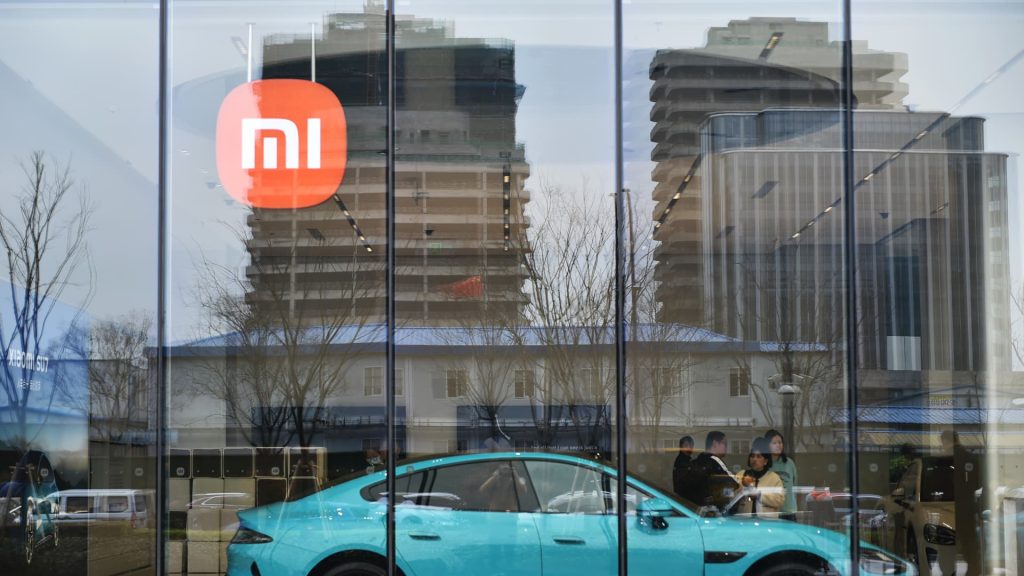Shares of Chinese smartphone maker Xiaomi soared by 15% upon the announcement of the company’s new electric car, the SU7. The car was launched ahead of the Easter holiday and priced at about $4,000 less than Tesla’s Model 3, with Xiaomi claiming it would have a longer driving range. Demand for the SU7 was high, with wait times of at least 5 months for the basic version and over 50,000 orders received within minutes of sales starting. Other Chinese EV startups like Xpeng and Nio also announced purchase subsidies in response to government policies promoting consumption with trade-ins.
Despite the competitive pricing and high demand for electric cars in China, the growth of new energy vehicles in the market is showing signs of slowing. Battery and hybrid-powered cars now make up more than one third of new cars sold in China, but companies like Li Auto, Nio, and Xpeng have all trimmed their first quarter delivery forecasts. Li Auto delivered 28,984 cars in March, slightly below expectations, leading to a reduction in their delivery estimates. Nio and Xpeng also reported lower than expected delivery numbers for March, with Nio delivering 11,866 cars and Xpeng delivering 9,026 vehicles. However, Huawei’s new energy car brand Aito had a successful month in March, delivering 31,727 cars.
BYD remains a dominant player in the Chinese electric car market, selling 139,902 battery-powered passenger cars and 161,729 hybrid vehicles in March. The company’s total passenger car sales rose by nearly 14% compared to the previous year, highlighting its strong position in the industry. The success of BYD contrasts with the struggles faced by other EV startups, as they adjust their forecasts in response to changing market conditions. Despite the challenges, the overall electric car market in China continues to evolve, driven by government policies and consumer demand for more environmentally friendly transportation options.
The announcement of Xiaomi’s SU7 electric car has had a significant impact on the company’s stock price, with shares surging upon the news. The competitive pricing and features of the new car have generated strong demand, leading to wait times of several months for interested buyers. In response to the growing competition in the electric car market, other companies like Xpeng and Nio have introduced purchase subsidies to attract customers and boost sales. However, despite the high demand for electric cars in China, the overall growth of new energy vehicles is showing signs of slowing, with some companies revising their delivery estimates for the first quarter.
The success of BYD in the Chinese electric car market underscores the company’s position as an industry giant, with strong sales of both battery-powered and hybrid vehicles. While other EV startups are facing challenges in meeting delivery expectations, BYD continues to perform well and increase its market share. The evolution of the electric car market in China is driven by a combination of government policies promoting consumption, consumer demand for more sustainable transportation options, and the innovation and competition among industry players. As the market continues to grow and evolve, companies like Xiaomi, Li Auto, Nio, Xpeng, and Huawei will need to adapt to changing conditions and consumer preferences to remain competitive and succeed in the long term.















